Explore ‘Industrial Hemp Production’ with a New, Practical ATTRA Publication
A new publication from the National Center for Appropriate Technology’s sustainable agriculture program, ATTRA, offers a practical primer for farmers who want to try their hand at growing industrial hemp.
Absent from U.S. Agriculture since the 1930s, hemp was reintroduced as part of the 2018 Farm Bill. The bill defined hemp as essentially a cannabis plant with 0.3 % or less of THC. That led hemp crops to be subject to complex regulations and testing.
Industrial Hemp Production details those considerations as well as production information for hemp grown to produce fiber, seeds, and CBD cannabis products.
“For some farmers, hemp could make a lot of sense,” said Mike Lewis, a Kentucky farmer and sustainable agriculture specialist with NCAT and one of the authors of the publication. “But it’s a complicated crop to grow and can carry some unusual risks, such as THC levels and required harvesting periods. This publication gives farmers practical tools to understand if it’s the right crop for them.”
Jody McGinness, director of the Hemp Industries Association, co-authored the publication with Lewis, who serves as the association’s president.
Industrial Hemp Production connects farmers with a variety of information:
- Regulatory considerations, including state and tribal licensing; local ordinances, seed genetics, and required harvesting windows.
- Marketing challenges that arise from hemp being a young and volatile market sometimes subject to a variety of regulations depending on where it is being grown.
- Products that can be produced from hemp and the characteristics of the varieties used for fiber, seeds, and flowers.
- Practical production tips such as spacing, harvesting, and processing, as well as information on how the tough, resinous hemp plants can affect equipment.
Industrial Hemp Production is available to download free on the ATTRA website at ATTRA.NCAT.ORG. It was produced by NCAT through the ATTRA Sustainable Agriculture program, under a cooperative agreement with USDA Rural Development.

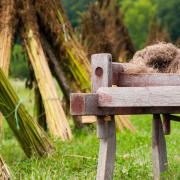
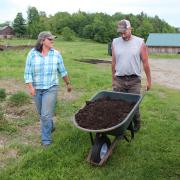
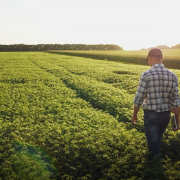
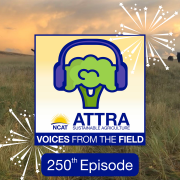
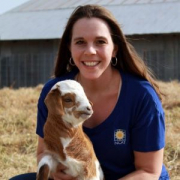

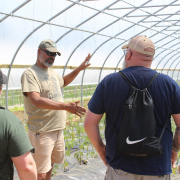

 Courtesy
Courtesy Pure Pastures, Maggie Eubank
Pure Pastures, Maggie Eubank